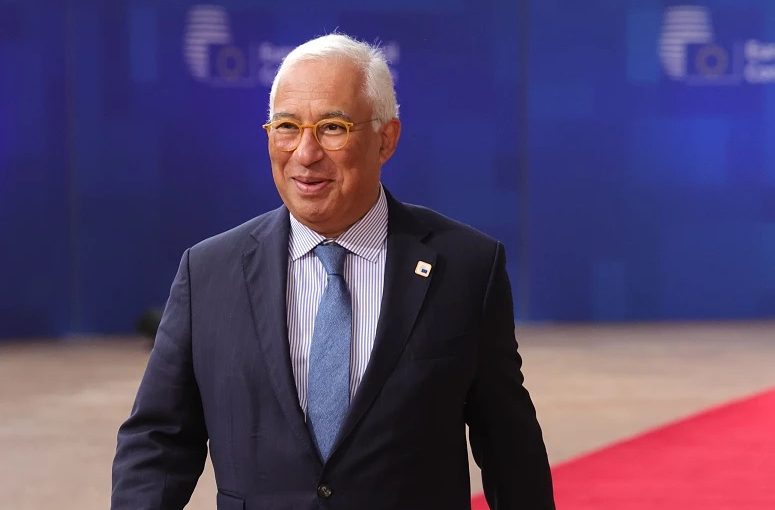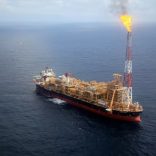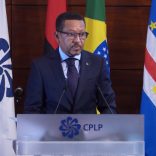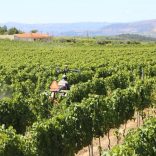Bolsonaro on brink of conviction in Brazil coup trial
Portugal: Former PM eyes top EU as wrangling to begin in earnest on Monday

File photo: Lusa
On Monday, the European Council begins discussions on the top positions in the European Union institutions, which which should culminate in a decision at a European summit at the end of the month, with a former Socialist prime minister of Portugal, António Costa, in the running for president of the Council.
On Monday, EU leaders – including Costa’s successor in Lisbon, Luís Montenegro of the centre-right Social Democratic Party (PSD) – will meet at an informal dinner in Brussels to discuss the next EU institutional cycle, a week after European elections that handed victory to the right-of-centre European People’s Party (EPP), with the Socialists and Democrats (S&D) coming second and the liberals of Renew Europe third.
“The European Council is key to appointing the next high-level EU positions, namely electing the President of the European Council, appointing the President of the European Commission and appointing the High Representative of the Union for Foreign Affairs and Security Policy,” the institution states on the agenda for the informal summit.
This high-level meeting will then discuss the institutional leadership package (which also, albeit unofficially, includes the presidency of the European Parliament) and “any decision by the European Council must reflect the diversity of the EU in terms of geography, country size, gender and political affiliation,” the agenda note also states.
The names most talked about in Brussels are those of Costa for the European Council, Ursula von der Leyen for a new term at the head of the European Commission, the prime minister of Estonia, Kaja Kallas, for EU high representative and Roberta Metsola for re-election to the leadership of the European Parliament.
A European source familiar with the discussions told Lusa that “things are moving in the right direction” for the appointment of Costa, as well as von der Leyen and Metsola, but not for thta of Kallas, because it is expected that in another negotiation outside the EU, the Netherlands prime minister, Mark Rutte, also from the liberal camp, will be chosen as secretary general of the North Atlantic Treaty Organization.
S&D leaders are expected to announce their official support for Costa soon, as well as their endorsement of von der Leyen.
An EPP source told Lusa that the grouping’s position on supporting Costa depends on the package presented at the European Council, although there is interest in an agreement on the four top posts. The same source recalled Montenegro’s support for Costa’s appointment, which he promised would not be blocked by his European political family.
A source from the liberals declined to comment, indicating that the Renew Europe group is concentrating on the composition of the group and will only think about the top posts afterwards.
In an interview with Lusa at the end of May, the president of the European Council, Charles Michel, himself from the liberal camp, said that it was EU leaders’ “duty” to reach agreement by the end of June on the leadership of the top positions in the next institutional cycle, to ensure the “continuity” of the European project.
It was, he said, to “maximise the chances” of agreement that he had organised next Monday’s informal dinner of EU heads of government and state, ahead of the decisive European summit on 27 and 28 June. He has also been holding bilateral meetings with EU leaders, including Montenegro.
Although Costa stepped down as prime minister after his name came up in a criminal investigation into alleged government abuses, Costa remains a stronger contender to succeed Michel (who has been in office since 2019) as president of the European Council, the EU institution that brings together EU governments, in an appointment that is made by EU leaders, who decide by qualified majority (at least 55% of the 27 member states, representing at least 65% of the total population).
As well as Montenegro, who has already said he would support his compatriot’s appointment, there are 11 other heads of government and state in the EPP camp (in Greece, Croatia, Latvia, Sweden, Austria, Ireland, Romania, Finland, Cyprus, Poland and Luxembourg).
It is also the European Council that proposes the candidate for president of the European Commission, an institution that has been headed by von der Leyen since 2019. After this final endorsement it is then up to the European Parliament, a majority of whose members must vote in favour (half of the 720 MEPs plus one).












Leave a Reply
Be the First to Comment!
You must be logged in to post a comment.
You must be logged in to post a comment.